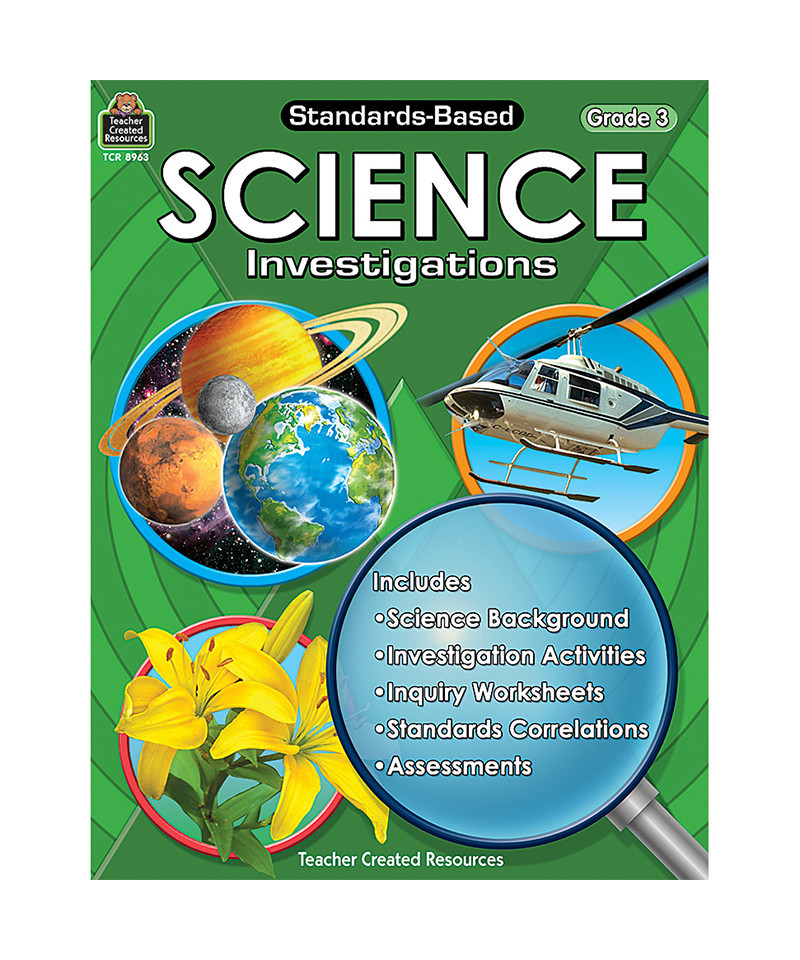As they read about science, students develop content vocabulary and scientific fluency. By doing science experiments, students see science in action and gain a clearer understanding of scientific principles and properties. When they practice the inquiry process of scientific investigation, students get a peek at how scientists work, how they learn, discover, explain and modify the world around us. That's the philosophy behind this series of books, reading, doing, and critical thinking. The language is clear, simple, and scientifically correct. The imaginative and effective lessons cover life, earth, and physical sciences. Helpful extras include science inquiry worksheets, an inquiry assessment rubric, and alignment to standards. For Grade 3, sample activities include hydroponic gardening, examining seashells, identifying constellations, making a cloud, observing evaporation, creating static electricity, making helicopters, and flying planes.


